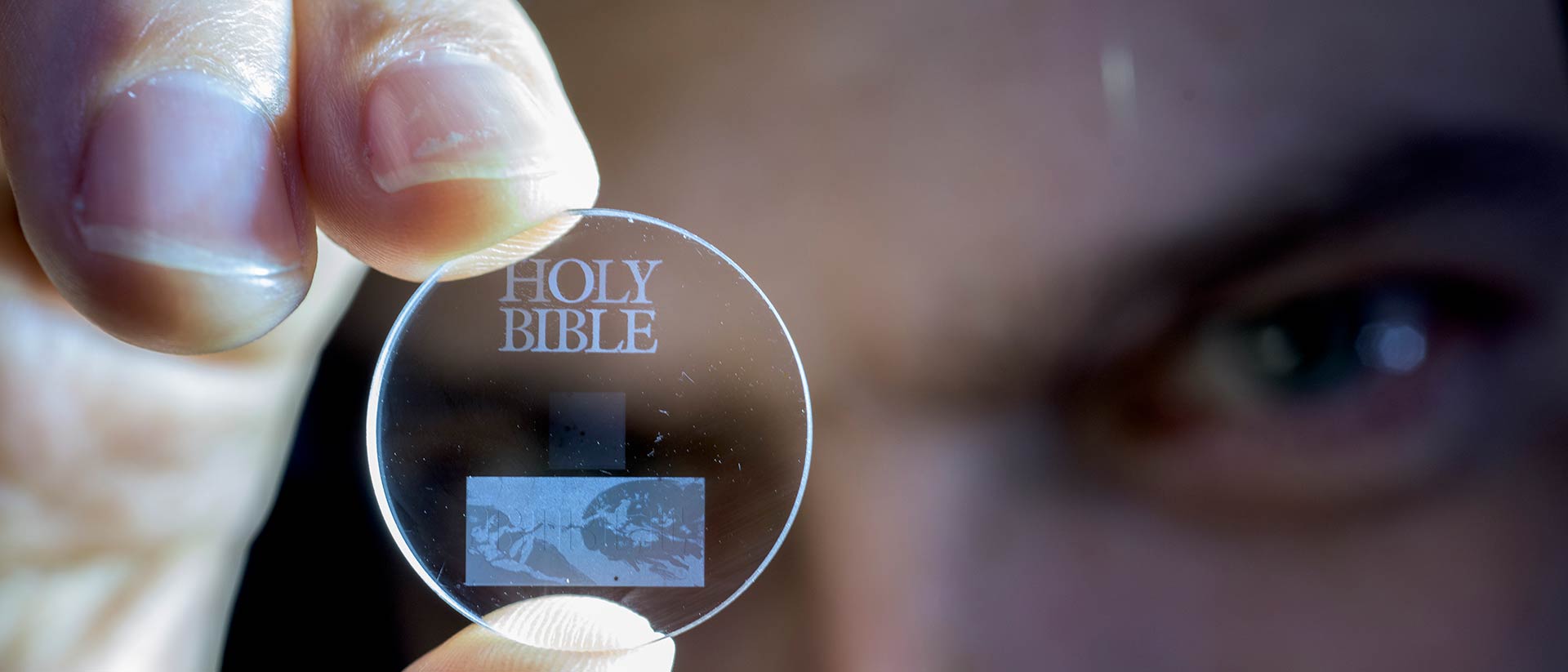
Save for five billion years
The knowledge of mankind burned-in with light into glass
A Team of the University of Southampton developed a system that is capable of storing data up to five billion years.
Only one storage medium has proven that it is capable of storing data for more than 5.000 years safely. Which is tone. Already more than 5.000 years ago people wrote down on clay tablets in cuneiform what happened in their lives. The knowledge that we already have encountered about the history of humankind we gather largely from records made by our ancestors set up over thousands of years in every conceivable form. CD-ROM or hard drives only last for some decades at the best.
But which medium is going to survive the next millennia? Which data storage could defy natural disasters or simply preserve the knowledge of mankind stored in a dark, cold archive maybe deep down in the underground?
Physicists of the Optoelectronics Research Centre (ORC) of the University of Southampton work on a solution for this problem. They now perfected a storage medium from which they believe could possibly be capable of preserving data for the next five billion years. As writing material they use a short-pulse laser and as “book” a crystal glass.
Utilizing a short-pulse laser the researchers burned-in micrometer-small data points into the quartz crystal the size of a two-euro coin. The combination of dot size and spatial arrangement resulted in a five-dimensional storage. This way 360 terabyte can be stored and can withstand temperatures of 1.000 degree Celsius.
Those who want to read out the data need some technology. The nanostructures holding the information that have been burned-in the glass by short-pulse laser, changing the way the light chooses through the quartz crystal. This altered polarization can then be read-out with the help of a microscope and a polarization filter. “It is thrilling to think that we have created the technology to preserve documents and information and store it in space for future generations”, Professor Peter Kazansky, from the ORC, says. “All we’ve learnt will not be forgotten.”












